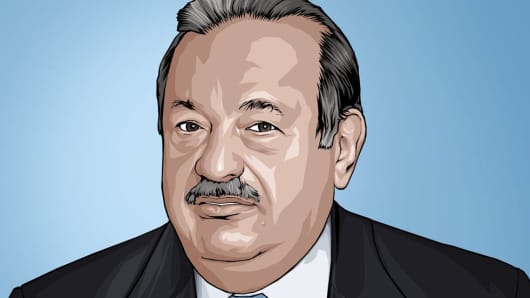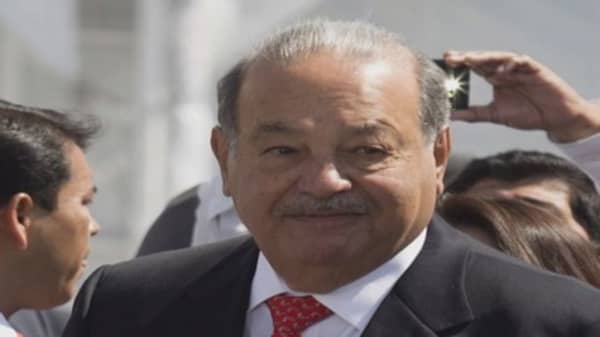Chairman, Grupo Carso
Born: January 28, 1940, Mexico City
Education: Civil engineering, Universidad Nacional Autónoma de México
Carlos Slim had amassed a modest fortune from his conglomerate, Grupo Carso, when a financial crisis hit Mexico in 1982. With the country suffering its worst recession since the Great Depression, he rolled the dice.
Slim went on a buying binge, sweeping all or part of many Mexican companies into Grupo Carso, which already comprised construction and tobacco companies. His purchases included the retailer Sanborns and 40 percent and 50 percent stakes in the Mexican arms of British American Tobacco and Hershey, respectively. He moved into financial services, creating Grupo Financiero Inbursa out of his acquisitions in the sector, and expanded into chemicals and metals trading. Cash flow of one of the first companies he bought, cigarette-maker Cigatam, financed those acquisitions.









































